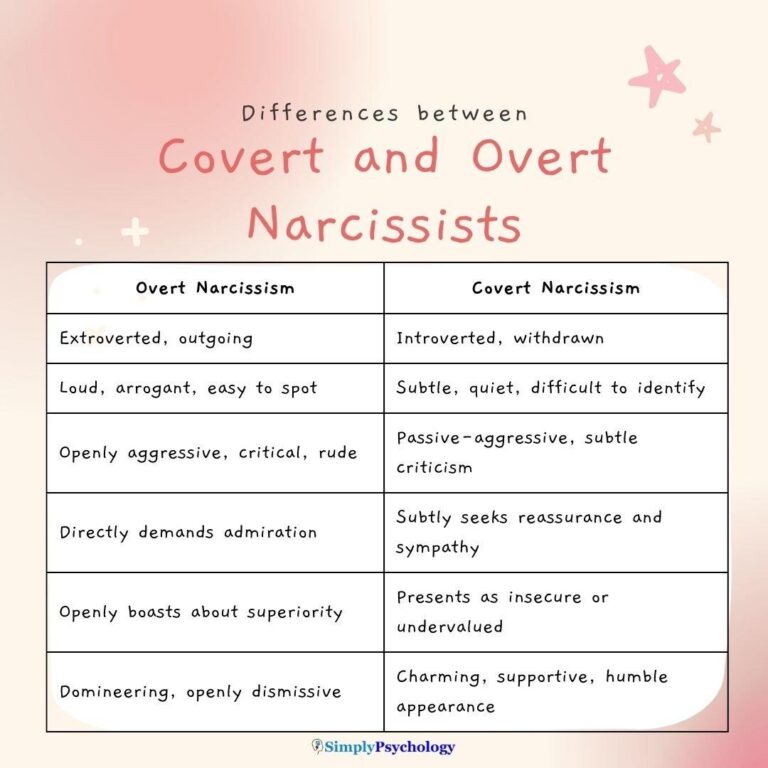In a world increasingly aware of mental health and personality dynamics, narcissism often grabs attention as a loud, attention-seeking behavior. However, lurking beneath the surface is a far subtler and often overlooked form: covert narcissism. Unlike its overt counterpart, covert narcissism is characterized by quiet manipulation, hidden insecurities, and a deeply ingrained need for validation that doesn’t announce itself with grandiosity. Understanding covert narcissism is crucial because its subtlety makes it harder to spot—and its impact on relationships can be just as damaging. In this article, we’ll explore what covert narcissism really is, how it differentiates from the more familiar overt type, and most importantly, how to recognize its signs before it quietly undermines your emotional well-being.
Table of Contents
- Understanding the Subtle Signs of Covert Narcissism
- The Psychological Impact of Living with a Covert Narcissist
- Strategies for Setting Boundaries and Protecting Your Wellbeing
- Seeking Professional Help and Support for Covert Narcissism
- In Conclusion
Understanding the Subtle Signs of Covert Narcissism
At first glance, covert narcissism may appear almost invisible, masked by a quiet demeanor and a seemingly humble exterior. Unlike the classic narcissist who openly demands admiration and attention, the covert type often exhibits their grandiosity through indirect and subtle behaviors. These individuals may portray themselves as perpetual victims or martyrs, seeking validation through sympathy rather than overt praise. Their self-centeredness hides beneath layers of insecurity, manifesting as passive-aggression, chronic envy, or an unhealthy need for control that is expertly concealed to avoid confrontation.
Recognizing the signs involves tuning into less obvious cues that hint at an underlying narcissistic pattern. Look for patterns of:
- Emotional manipulation disguised as concern or helplessness;
- Excessive sensitivity to criticism paired with subtle blame-shifting;
- Quiet competitiveness masked as modesty but driven by jealousy;
- Disguised self-importance, often cloaked in sarcasm or self-deprecation;
- Boundary-pushing behaviors done under the pretense of closeness or care.
Understanding these nuances equips you to see beyond surface interactions and better navigate relationships with covert narcissists.
The Psychological Impact of Living with a Covert Narcissist
Living with a covert narcissist can feel like walking on a tightrope, emotionally and mentally draining those caught in their web. Unlike overt narcissists, covert ones wield their manipulation with subtlety, often cloaked in vulnerability or passive-aggressiveness. This leaves their loved ones questioning their own perceptions and sanity, trapped in a cycle of confusion and self-doubt. Over time, this persistent emotional erosion can manifest as anxiety, depression, or even symptoms resembling post-traumatic stress disorder. It’s a quiet trauma — the kind that slowly chips away at your self-esteem and sense of reality without the loud clashes that might trigger external intervention.
The psychological toll often involves more than just emotional fatigue. Victims may experience:
- Chronic self-blame and guilt, even when they are not at fault;
- Difficulty trusting others, stemming from constant gaslighting and manipulation;
- Isolation, as the covert narcissist may subtly alienate them from friends or family;
- Emotional numbness, a protective yet damaging response to the persistent emotional turmoil.
Recognizing these impacts is key to breaking free from their psychological grip and starting the healing process.
Strategies for Setting Boundaries and Protecting Your Wellbeing
Establishing clear and firm limits is crucial when dealing with covert narcissism, as these individuals often blur emotional boundaries to manipulate or guilt-trip others subtly. Begin by identifying your personal limits—what you are comfortable with emotionally, physically, and mentally. Communicate these boundaries assertively but calmly, using “I” statements to emphasize your needs without accusation. Remember, consistency is key; covert narcissists may test your limits repeatedly. Maintaining your stance without justification or apology reinforces your autonomy and discourages further boundary-pushing.
Protecting your wellbeing also means cultivating a strong support system that validates your reality and offers objective perspectives. Surround yourself with people who respect your boundaries and recognize covert narcissistic behaviors, as they can help you maintain clarity when manipulation clouds your judgment. Additionally, incorporate regular self-care routines—such as journaling, meditation, and physical activity—that restore your emotional energy and reinforce your sense of self-worth. By prioritizing your needs and establishing firm limits, you reclaim control over your life and create a protective shield against covert narcissistic influence.
- Clearly define your emotional and physical boundaries.
- Communicate limits using calm, assertive language.
- Be consistent in enforcing boundaries without excuse.
- Foster a supportive, empathetic network around you.
- Engage in daily practices that nurture your emotional health.
Seeking Professional Help and Support for Covert Narcissism
Recognizing covert narcissism can be challenging, not only because of its subtlety but also due to the emotional toll it takes on both the individual and those around them. Seeking professional support is a critical step in navigating these complex dynamics. A therapist or counselor with experience in narcissistic personality patterns can offer a safe and nonjudgmental space to unravel the underlying insecurities and develop healthier coping mechanisms. Therapeutic approaches like cognitive-behavioral therapy (CBT) or dialectical behavior therapy (DBT) often help in addressing distorted self-perceptions and building empathy.
When pursuing professional help, it’s important to consider the following:
- Specialization: Choose a mental health professional who understands personality disorders and has a track record of working with narcissistic traits.
- Support network inclusion: Therapy that involves family or close friends can be valuable, as covert narcissism affects interpersonal relationships profoundly.
- Consistency and patience: Progress may be slow, but sustained engagement with therapy is key to meaningful change.
In Conclusion
Understanding covert narcissism is crucial for recognizing the subtle signs that often go unnoticed yet can deeply affect relationships and personal well-being. By educating ourselves about this quieter, more concealed form of narcissism, we become better equipped to set healthy boundaries, seek appropriate support, and foster genuine connections. Remember, acknowledging the existence of covert narcissism is not just about identifying troubling behavior—it’s about empowering yourself with awareness and compassion, both for others and for your own mental health. Stay informed, stay vigilant, and prioritize your emotional safety.

